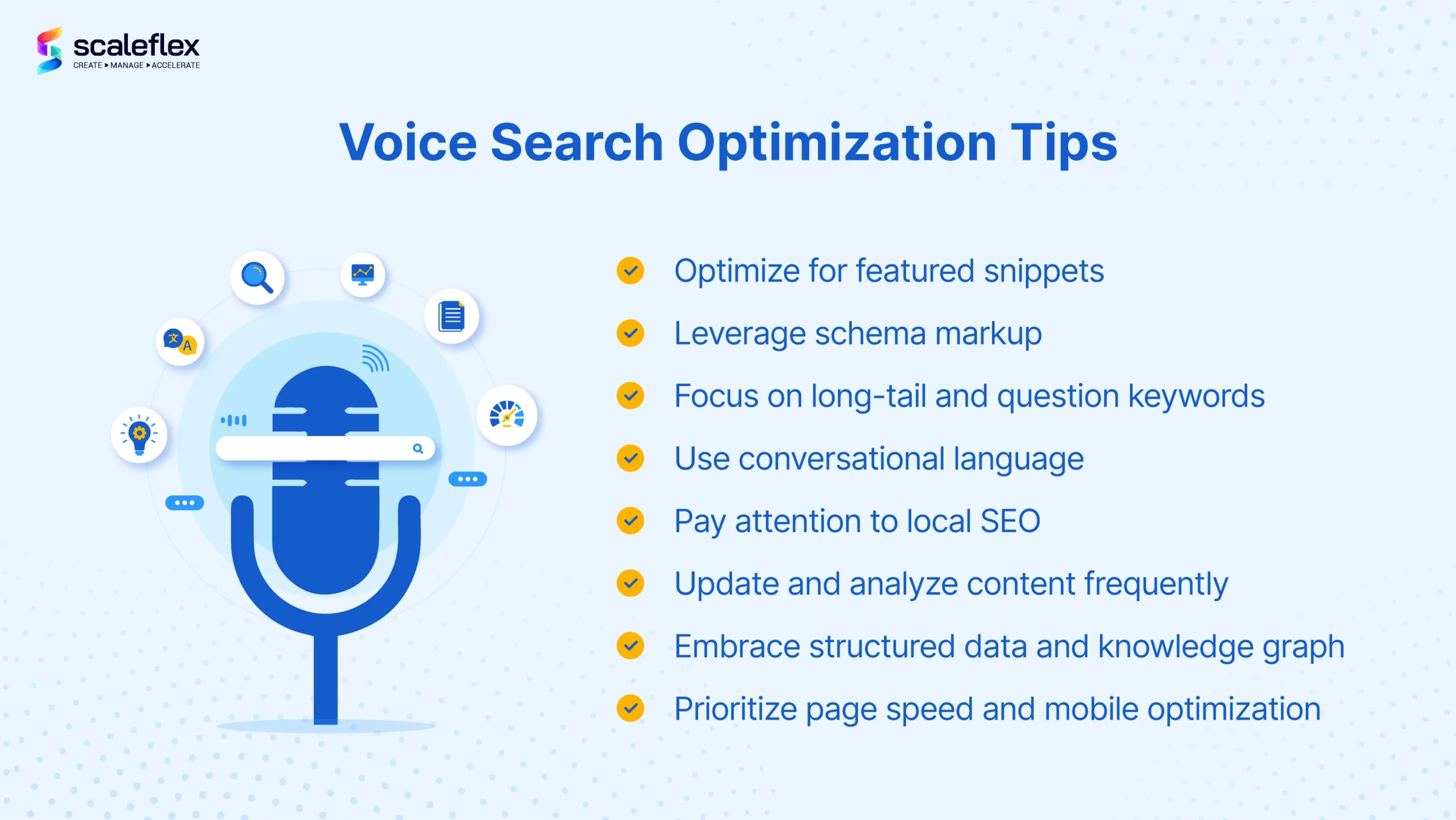
Voice search is no longer just a futuristic concept—it’s rapidly becoming an integral part of how people search for information online. With the rise of smart assistants like Google Assistant, Siri, Alexa, and Cortana, more users are using their voice to search instead of typing. This shift has significant implications for SEO strategies, and businesses must adapt to remain visible in search results.
Why Voice Search is Important for SEO
- Increased Usage of Smart Devices
Smartphones, smart speakers, and IoT devices have made voice search more accessible. Studies show that over 55% of households are expected to own smart speakers by 2025, highlighting the growing importance of optimizing for voice search. - Changing Search Behavior
Voice searches are usually longer and more conversational than typed searches. For example, instead of typing “best pizza near me,” a user might say, “Where can I find the best pizza near me?” This changes the type of keywords and phrases that SEO professionals need to target. - Higher Chances for Featured Snippets
Voice assistants often read content directly from featured snippets. Websites that appear in position zero have a higher chance of being spoken aloud in voice search results.
How to Optimize Your Website for Voice Search
- Focus on Conversational Keywords
Use long-tail keywords that match natural speech patterns. Think about the questions your audience might ask and create content around those queries. - Create FAQ Pages
FAQs are perfect for voice search because they directly answer common questions. Structure your answers clearly and concisely so that search engines can easily pick them up. - Optimize for Local Search
Many voice searches are location-based. Ensure your Google Business Profile is updated, and include local keywords in your content. - Improve Page Load Speed
Voice searches are often mobile-based, so a fast-loading, mobile-friendly website is crucial. - Use Structured Data (Schema Markup)
Implementing schema markup helps search engines understand your content better, increasing the chances of appearing in voice search results. - Write in a Natural, Conversational Tone
Since voice searches mimic how people speak, your content should feel natural and easy to read aloud.
Our Services SEO Services in Rajgir | SEO Services in Siwan | SEO Services in Prayagraj | SEO Services in Varanasi
Key Takeaways
- Voice search is transforming how people interact with search engines.
- Conversational keywords, FAQs, local SEO, and structured data are essential for optimization.
- Businesses that adapt early to voice search will enjoy higher visibility, better user engagement, and more traffic from emerging voice-driven queries.
FAQs About Voice Search and SEO
1. How does voice search affect mobile SEO?
Voice search is heavily mobile-driven, so optimizing your site for mobile responsiveness and fast loading times is crucial to rank higher in voice search results.
2. Do people use voice search differently from text search?
Yes. Voice searches tend to be longer, more conversational, and question-based, reflecting how people speak naturally, rather than the short keywords they type.
3. Can voice search improve local business visibility?
Absolutely. Many voice searches include phrases like “near me,” making local SEO strategies critical for attracting nearby customers.
4. Is schema markup necessary for voice search SEO?
While not strictly required, using structured data significantly improves the chances of your content being picked up by voice assistants.
5. Are there industries that benefit more from voice search?
Yes. Businesses in restaurants, local services, healthcare, travel, and e-commerce often see higher benefits because their users frequently use voice to find nearby services or quick information.
6. Will optimizing for voice search also improve traditional SEO?
Yes. Techniques like improving site speed, mobile usability, and creating clear, structured content benefit both voice and traditional search rankings.
Conclusion
Optimizing for voice search is no longer optional—it’s becoming a vital part of any modern SEO strategy. By understanding user behavior, creating conversational content, and leveraging technical SEO best practices, you can ensure your website is ready for the voice search revolution.
Start optimizing your website for voice search today and stay ahead of the curve in 2025!





